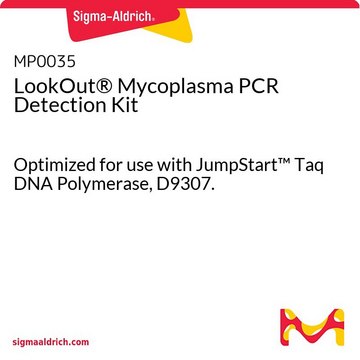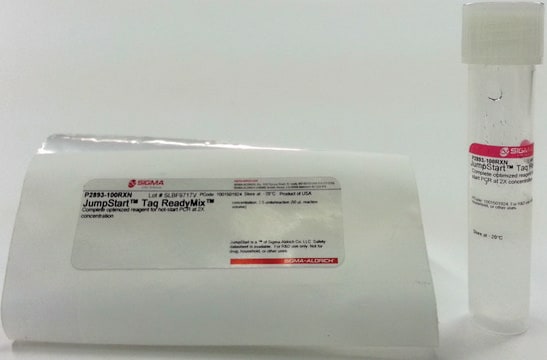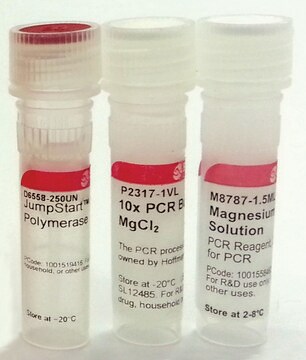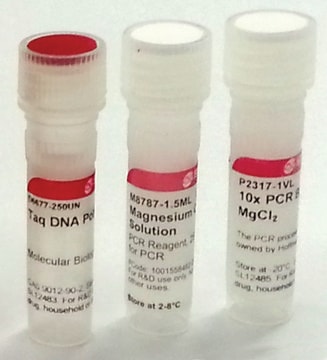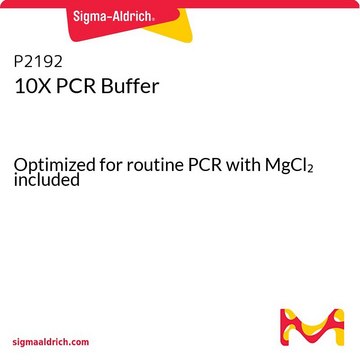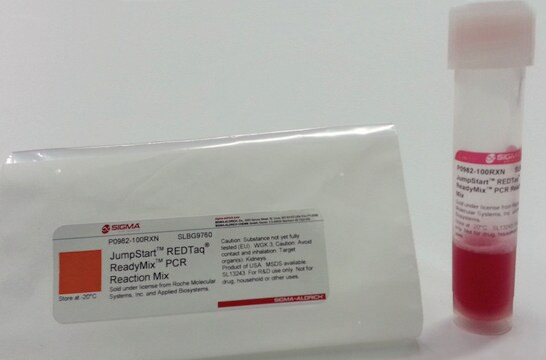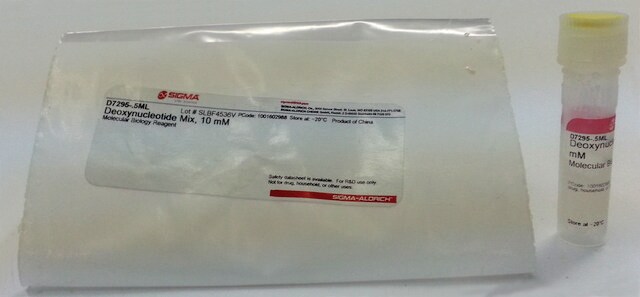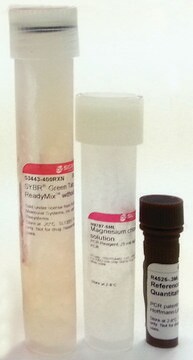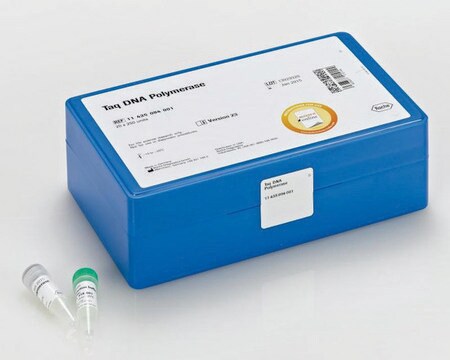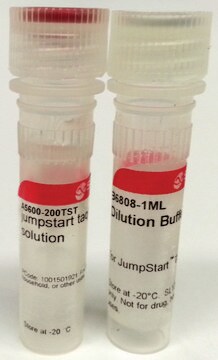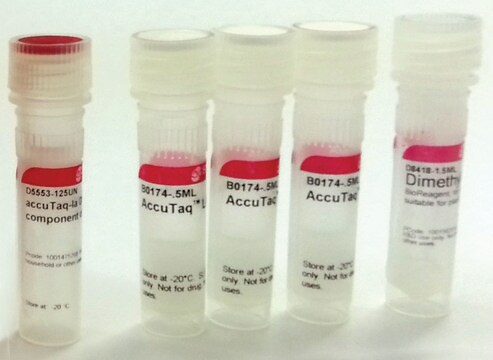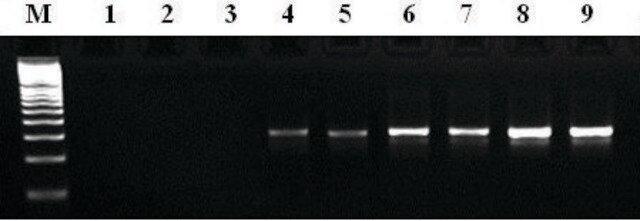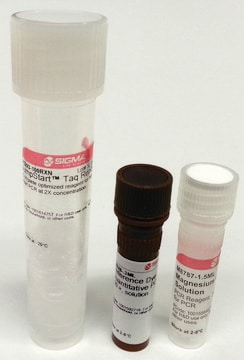Kluczowe dokumenty
D9307
JumpStart™ Taq DNA Polymerase
with MgCl2
Synonim(y):
gorący start PCR, polimeraza DNA gorącego startu
About This Item
Polecane produkty
Formularz
liquid
zastosowanie
sufficient for 1500 reactions
sufficient for 250 reactions
sufficient for 50 reactions
Właściwości
dNTPs included: no
hotstart
stężenie
2.5 units/μL
metody
PCR: suitable
kolor
colorless
moc wejściowa
purified DNA
przydatność
suitable for PCR
Zastosowanie
agriculture
Warunki transportu
wet ice
temp. przechowywania
−20°C
Szukasz podobnych produktów? Odwiedź Przewodnik dotyczący porównywania produktów
Powiązane kategorie
Opis ogólny
Zastosowanie
- For PCR amplifications that require reduced non-specific amplification
- For multiplex PCR
- For reduction of primer dimers
- in the amplification of DNA libraries of varying sizes
- in a methylation-specific, quantitative real-time polymerase chain reaction (MS-qPCR) to determine the BRCA1 promoter methylation status
- in the generation of plasmid by amplifying the full-length of HIF1β via PCR
Cechy i korzyści
- Reduces non-specific amplification
- Increases PCR specificity and yield
- Reduces set-up time concerns associated with manual or wax Hot Start methods
- Activation time of less than 1 minute
Opakowanie
Inne uwagi
Definicja jednostki
Informacje prawne
Antibody licensed for in vitro research use under U.S. Patent No. 5,338,671 and 5,587,287, and corresponding patents in other countries.
produkt powiązany
Kod klasy składowania
10 - Combustible liquids
Temperatura zapłonu (°F)
Not applicable
Temperatura zapłonu (°C)
Not applicable
Wybierz jedną z najnowszych wersji:
Masz już ten produkt?
Dokumenty związane z niedawno zakupionymi produktami zostały zamieszczone w Bibliotece dokumentów.
Klienci oglądali również te produkty
Protokoły
This protocol provides a simple and convenient method to isolate, amplify and purify genomic DNA from saliva
Mycoplasma contamination of cell cultures is a serious issue impacting cell model validity. PCR testing for mycoplasma is an inexpensive, sensitive, and specific method for detecting contamination.
Blood cards provide the convenience of archiving small volumes of blood. However, many times genomic DNA from these samples is limited, This protocol provides a simple and convenient method to extract genomic DNA from a blood card. Once the DNA has been extracted, it can then be amplified using the amplification protocol
Zanieczyszczenie hodowli komórkowych mykoplazmą jest poważnym problemem wpływającym na wiarygodność modeli komórkowych. Test PCR na obecność mykoplazmy jest niedrogą, czułą i specyficzną metodą wykrywania skażenia.
Powiązane treści
GenomePlex® Whole Genome Amplification is the method of extracting DNA from the animal sample. GenomePlex® products have been used to amplify genomic DNA from chicken, porcine, bovine, fish, and shrimp source.
Nasz zespół naukowców ma doświadczenie we wszystkich obszarach badań, w tym w naukach przyrodniczych, materiałoznawstwie, syntezie chemicznej, chromatografii, analityce i wielu innych dziedzinach.
Skontaktuj się z zespołem ds. pomocy technicznej